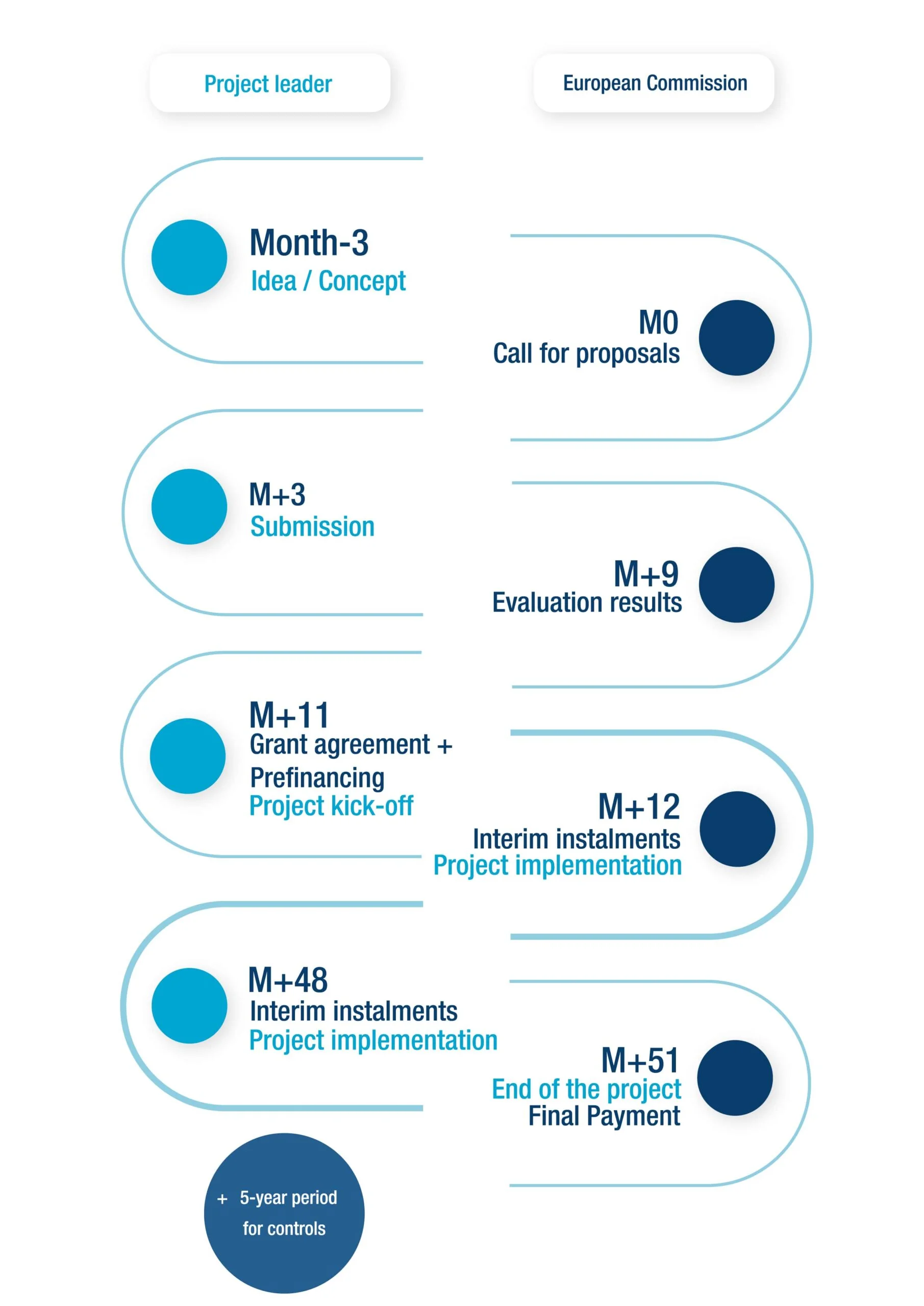+33(0)1 42 54 60 64 | contact@welcomeurope.com
+33(0)1 42 54 60 64 | contact@welcomeurope.com
Grants linked to cooperation and the fight against the various forms of crime in the Union, in order to ensure its security.
1.931 billion euro
Association & NGO
Consular Chamber & Agency
EU & International Organisation
Large company (> 250 employees)
Local Authority & Affiliated Entity
Research centre & university
Smes & Start-Ups (< 249 Employees)
State administration & affiliated entities
REGULATION (EU) 2021/1149 of the EP and the Council of 7 July 2021 establishing the Internal Security Fund
Funds to contribute to ensuring a high level of security in the Union, in particular by preventing and combating terrorism and radicalisation, serious and organised crime, and cybercrime, by assisting and protecting victims of crime, as well as by preparing for, protecting against and effectively managing security-related incidents, risks and crises.
Objectives
Structure
Financed actions


| Cookie | Duration | Description |
|---|---|---|
| cookielawinfo-checbox-analytics | 11 months | This cookie is set by GDPR Cookie Consent plugin. The cookie is used to store the user consent for the cookies in the category "Analytics". |
| cookielawinfo-checbox-functional | 11 months | The cookie is set by GDPR cookie consent to record the user consent for the cookies in the category "Functional". |
| cookielawinfo-checbox-others | 11 months | This cookie is set by GDPR Cookie Consent plugin. The cookie is used to store the user consent for the cookies in the category "Other. |
| cookielawinfo-checkbox-necessary | 11 months | This cookie is set by GDPR Cookie Consent plugin. The cookies is used to store the user consent for the cookies in the category "Necessary". |
| cookielawinfo-checkbox-performance | 11 months | This cookie is set by GDPR Cookie Consent plugin. The cookie is used to store the user consent for the cookies in the category "Performance". |
| viewed_cookie_policy | 11 months | The cookie is set by the GDPR Cookie Consent plugin and is used to store whether or not user has consented to the use of cookies. It does not store any personal data. |
